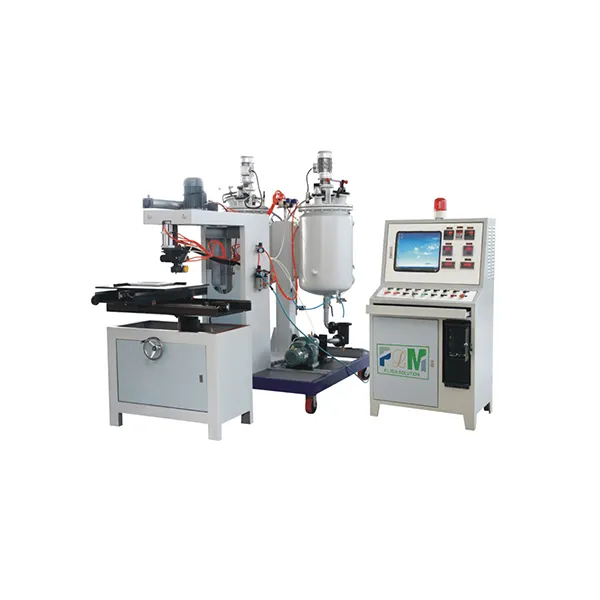Aug . 21, 2024 14:18 Back to list
Spiral Filter Core Production Equipment for Efficient Filtration Solutions
The Evolution and Importance of Spiral Filter Core Making Machines
In today's fast-paced industrial landscape, efficiency and precision are paramount, particularly in the manufacturing of filtration products. One such innovation that has revolutionized this sector is the spiral filter core making machine. These machines play a crucial role in producing high-quality filter cores that cater to various industries, including automotive, water purification, and HVAC systems.
Understanding Spiral Filter Cores
Spiral filter cores are essential components used in various filtering applications. They are designed to support filter media, ensuring optimal flow and filtration efficiency. The unique spiral design allows for a larger surface area, enhancing the filter's effectiveness while maintaining a compact size. These cores can be made from various materials, including plastics, metals, and composites, depending on the specific application requirements.
The Role of Spiral Filter Core Making Machines
Spiral filter core making machines are engineered to fabricate these intricate components with precision and speed. The machines utilize advanced technology to automate the manufacturing process, which significantly reduces the labor costs and time associated with traditional manufacturing methods. Equipped with automated controls and high-speed production capabilities, these machines can produce large quantities of filter cores with consistent quality and reduced waste.
The manufacturing process generally involves several critical steps, including the feeding of raw materials, the winding of the spiral core, and the cutting and finishing of the final product. Modern machines are often designed with user-friendly interfaces that allow operators to adjust settings and monitor production in real-time, ensuring optimal performance.
Benefits of Using Spiral Filter Core Making Machines
spiral filter core making machine products

2. Precision Manufacturing Spiral filter core making machines are designed to produce components with tight tolerances, ensuring that each filter core meets exact specifications.
3. Cost-Effectiveness By reducing labor costs and material waste, manufacturers can significantly lower their production expenses. This cost-effectiveness is vital in today's competitive market, where profit margins can be razor-thin.
4. Flexibility and Customization Many spiral filter core making machines are adaptable to different materials and designs, allowing manufacturers to customize products to meet specific customer needs quickly.
5. Sustainability Advanced machines often incorporate eco-friendly practices, such as energy-efficient operations and the use of recyclable materials, aligning manufacturing processes with global sustainability goals.
The Future of Spiral Filter Core Manufacturing
As technology continues to evolve, the spiral filter core making machine is expected to become even more sophisticated. Innovations such as artificial intelligence and machine learning could further enhance production processes by predicting maintenance needs and optimizing production parameters in real-time. Additionally, developments in materials science may lead to the introduction of new, more efficient filter media, driving demand for innovative manufacturing solutions.
Ultimately, the importance of spiral filter core making machines cannot be overstated. They are integral not only to the filtration industry but also to the broader manufacturing landscape, enabling companies to produce high-quality products that meet the needs of various sectors. As sustainability and efficiency become increasingly critical in manufacturing, these machines will continue to evolve, driving advancements that benefit both businesses and consumers alike.
In conclusion, as we move forward, investing in state-of-the-art spiral filter core making machines will be essential for manufacturers looking to stay competitive and meet the ever-growing demand for effective filtration solutions. With their myriad benefits, these machines represent the future of efficient and sustainable manufacturing practices in the filtration industry.
-
PLAB-6 A B Two Compounds Filter End Cap Gluing Machine - Hebei Filter Man | Precision Adhesive Application, Efficient Production
NewsAug.15,2025
-
PLAB-6 A B Two Compounds Filter End Cap Gluing Machine-Hebei Filter Man
NewsAug.15,2025
-
PLAB-6 A/B Two Compounds Filter End Cap Gluing Machine - Hebei Filter Man
NewsAug.15,2025
-
Premium Active Carbon Air Filter for Purifiers - Odor & VOC Removal
NewsAug.15,2025
-
PLAB-6 A B Filter Gluing Machine - Hebei Filter Man
NewsAug.14,2025
-
PLAB-6 A B Two Compounds Filter End Cap Gluing Machine-Hebei Filter Man Automotive Parts Trading Co., Ltd.|Adjustable Speed&Step Motor Control
NewsAug.14,2025
